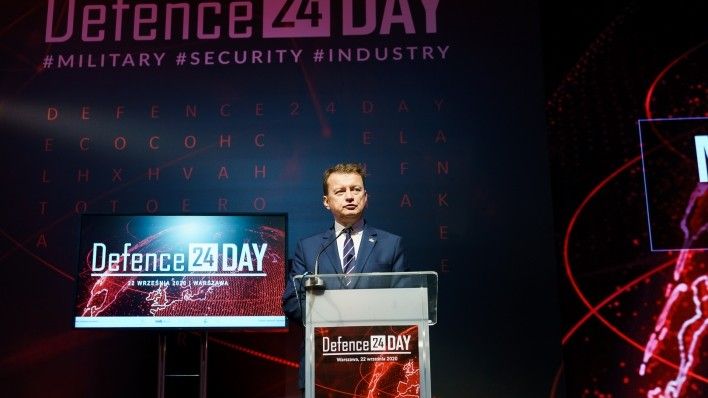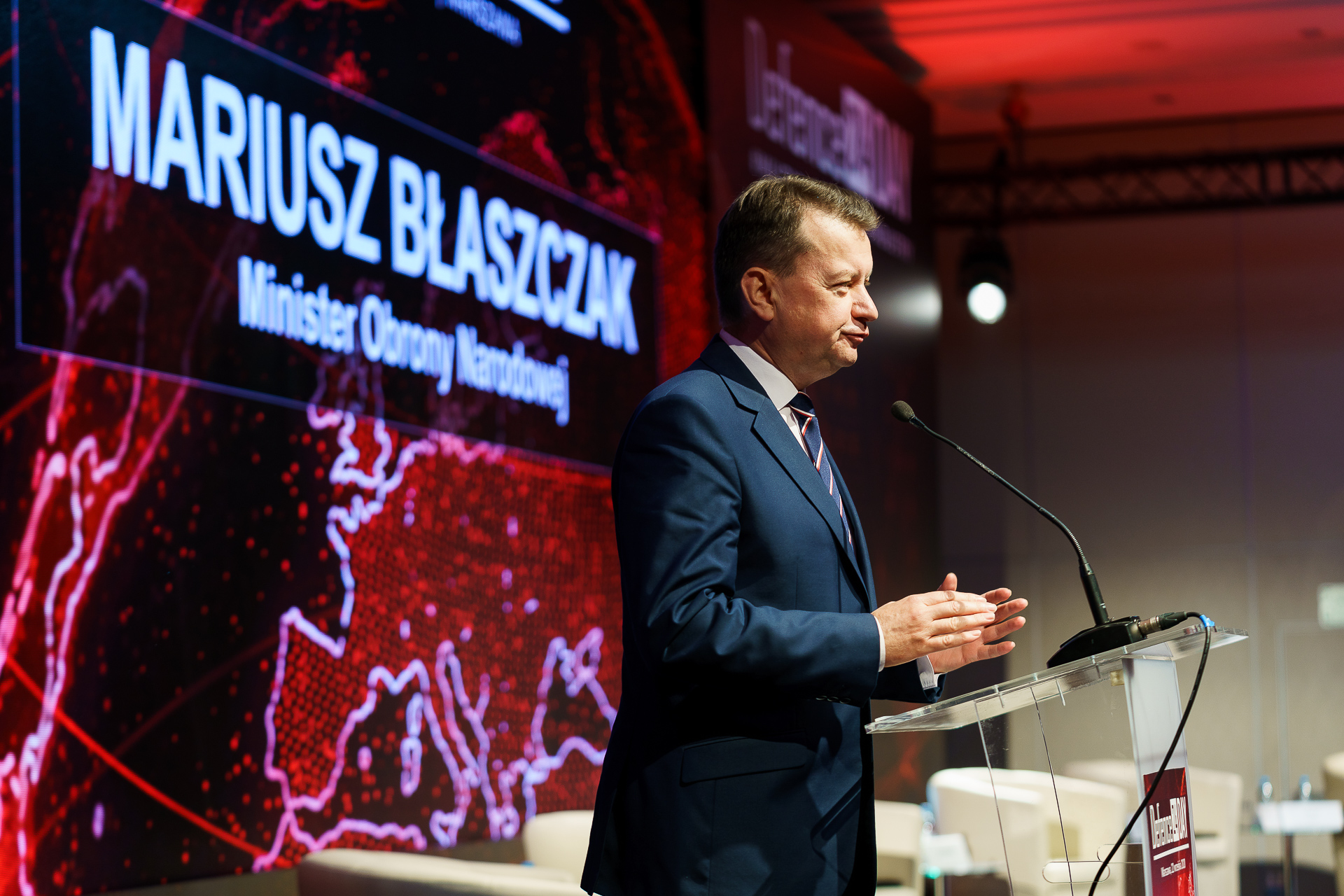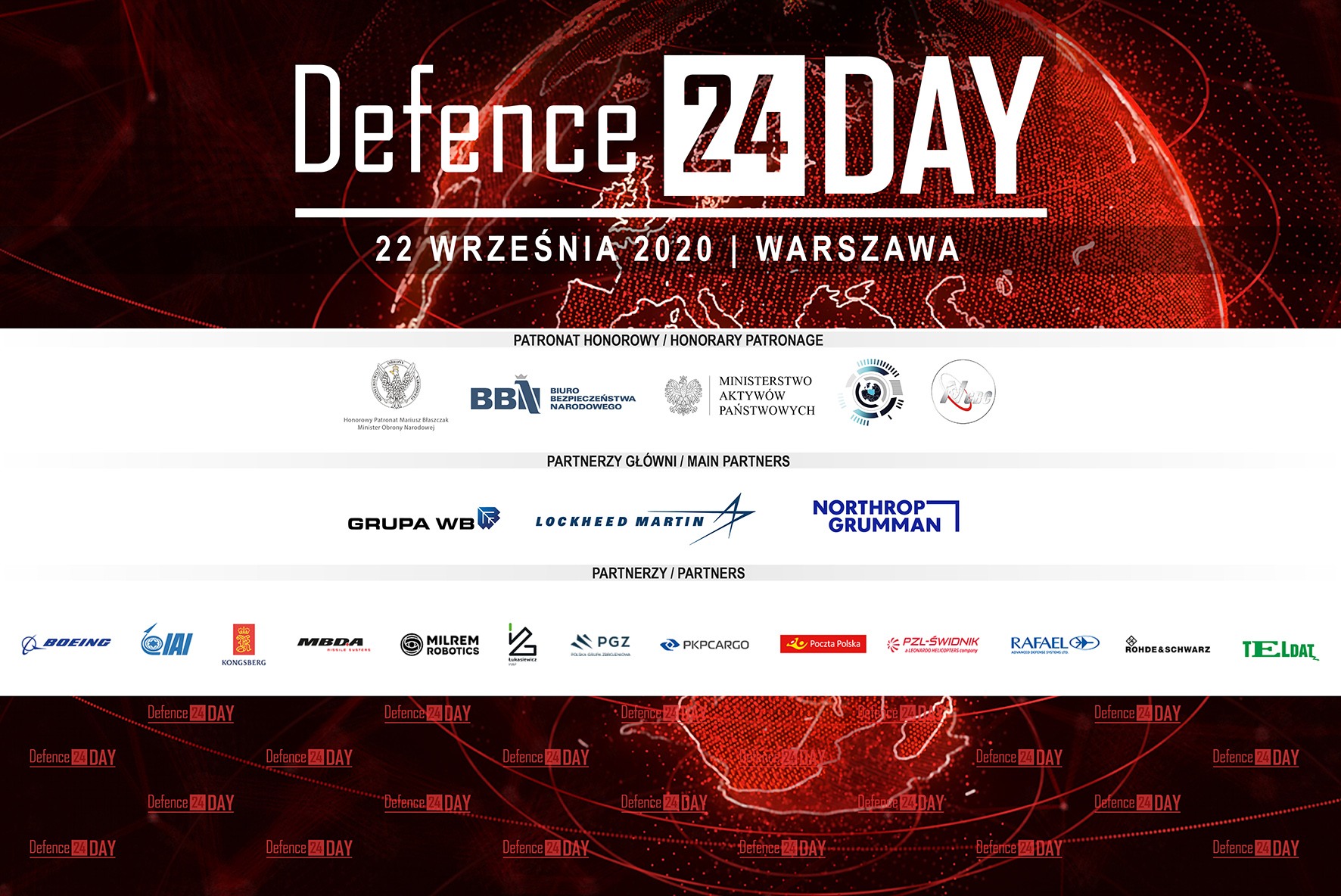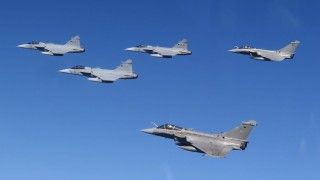- WIADOMOŚCI
- ANALIZA
Defence24 DAY: Polish Minister of Defence Presents Details of the Procurement Reform. Armament Agency to be Established
Consolidation of scattered know-how in the military procurement system, within a single institution, and making that entity responsible for complete lifecycle management, and reinforcement of coordination between the Armed Forces and the industry have all been listed as the primary objectives associated with the concept of establishment of the Armament Agency, as presented by Mariusz Błaszczak, head of the MoD, during the opening ceremony of the Defence24 DAY conference.

Błaszczak, during his speech, recalled that his main task is to complete three separate objectives. These include the increase of the number of troops in the Polish military (within the context of the establishment of the 18th Mechanized Division, the “Become the Soldier of the Republic of Poland” campaign, and the changes in the Polish military draft schemes), achieving a stronger position of Poland within the NATO structures, and in the relationship with the US - and this is associated with the agreement on extending the military cooperation with the US signed on 15th August, and modernization of the military when it comes to the equipment.
I would like to stress that the primary element on which our security is based, is the Polish military. Contrary to the opinion that emerges sometimes, the Polish military constitutes the base, the foundation, upon which the security of our homeland is placed. Thus, as I said, the Polish military needs to be larger, it needs to be modernized when it comes to the equipment.
The head of the MoD also recalled the most important modernization deals signed abroad, during the years 2018, 2019, and 2020. These procurement initiatives include the Patriot systems, the HIMARS launchers, and the F-35 fighter aircraft. Błaszczak added that more than 60% of the orders placed by the MoD in 2019 have been awarded to the domestic defence industry. He noted that the procurement processes are lengthy and complicated as well. These involve numerous entities, juggling the responsibility among themselves. To break this deadlock, a bill has been prepared bringing the Armament Agency to life. The document has been prepared under the guidance of a team headed by the plenipotentiary of the Polish Ministry of Defence for establishing the Armament Agency, Paweł Olejnik Ph.D.
Mariusz Błaszczak noted that before submitting the bill he would like it to be discussed at the Defence24.pl forum, so that specialist expertise could be put into use. He also referred to the supervision over the PGZ Group. Błaszczak said that it can be supervised by the MoD (and - in the new framework - via the Armament Agency) or by the Ministry of State Assets.
He noted that the Polish Ministry of Defence's supervision of the PGZ Group would make it easier to make “in-house” procurements in line with the European law, with the competition rules being excluded. 80% or even 90% of the PGZ’s production output is received by the Polish military. According to the EU law, according to the Polish law, with quantities as such present, and they are present, if PGZ is subordinated to the MoD, then in-house direct orders could be placed. What are the benefits that stem from that? The process would be quicker. Without any extensive procedures. What are the dangers involved? In case as such the process is not competitive, it does not require the manufacturer to make effort with regards to the cost of production and competitiveness, directly speaking, said the head of the Polish Ministry of Defence.

Speaking about the whole military equipment procurement system, the Minister said that the current system is not efficient: The procedural framework valid today has been tailored for modernization budget of PLN 2 billion. Nowadays, the modernization budget of both the Armament Inspectorate, as well as the Support Inspectorate of the Armed Forces, is ten times higher, Minister said.
The head of the MoD also said that the Armament Agency would be responsible for the whole equipment acquisition cycle. The Armed Forces would only be defining the capabilities required. The Minister also mentioned the necessity to oblige the General Staff to revise the operational requirements, so that the actual, realistic priorities could be defined. Błaszczak additionally emphasized the significance that the ability to create realistic requirements has, to avoid excessive cost increase - as it used to happen in the past, for instance in the Mustang programme.
This is the public money, our job is to rationally, cost-effectively spend that money, as we need to accomplish our objective, we need to have the Polish military equipped with modern equipment. (...) We must eliminate all factors making the costs unjustifiably increased.
The main assumption behind bringing the new entity to life is the aim to make the military equipment procurement processes more efficient. This is to be done through consolidation ad establishment of a new center of gravity for the modernization process, in a form of the Armament Agency. What’s even more important, the new organ would be managing the entire armament lifecycle, including the market research, procurement, orders, conclusion of agreements, quality supervision and operational support, or even the withdrawal/decommissioning processes.
The Armament Agency would also be responsible for assessing the emergence of the basic national security interest, while the assessment process itself would also undergo a relevant reform. The Agency would also verify the needs that the Polish military has, making the requirements realistic so that the conditions would be feasible - contrary to what has been happening, numerous times, in the past. The new entity would also be responsible for the offset matters, and for promoting the Polish defence industry exports. One of the assumptions behind the Agency is to increase the level of coordination of modernization plans with the domestic defence industry. This is to allow the industry to respond to the requirements that the military is going to define.
Making all of those plans a tangible reality would require a broad range of structural changes to be implemented. According to the concept presented by Błaszczak, the Armament Agency would take over the tasks of entities such as:
- Armament Inspectorate
- Offset Agreements Bureau of the Polish Ministry of Defence
- Inspectorate for Implementation of Innovative Defence Technologies (I3TO)
- Armed Forces Support Inspectorate – within the scope of operational support for the military equipment and armament
- Department of the Armament Policy at the Polish Ministry of Defence – within the scope of assessing whether the Basic National Security Interest emerges
- Military Centre for Standardization, Quality, and Codification - within the scope of qualitative supervision of the equipment
- Military Property Agency – within the scope of decommissioning
In his speech, Błaszczak noted that bringing the Armament Agency to life is aimed at rectifying the disadvantages of the current, scattered military procurement system. The lack of a clear division of responsibility or definition of requirements that are not realistic was frequently causing numerous delays.
The bill that would introduce the solutions listed here is a proposal submitted by the Polish Ministry of Defence - it is not final and it is soon going to become a subject of internal arrangements within the Ministry, and between Ministries afterward. The concept is a major opportunity to break the Gordian knot around the modernization processes, contributing to failure or delays in the case of many modernization programmes. The implementation of that concept would make it easier to coordinate the efforts undertaken by all of the military procurement process participants (including the industry), and this is viewed as the primary condition for the modernization programmes to proceed.
















